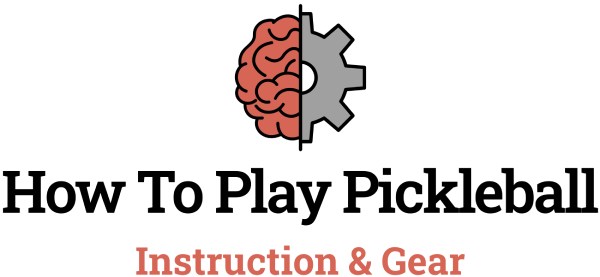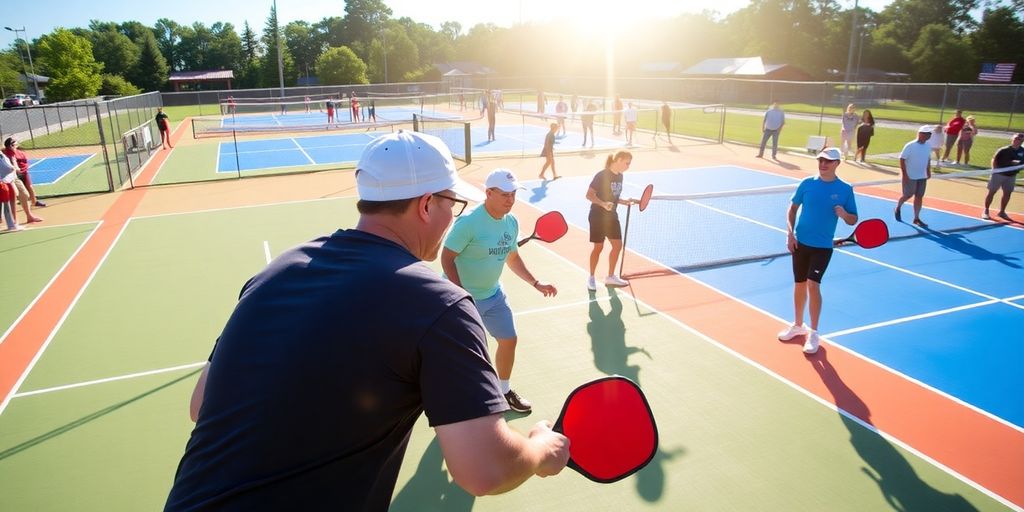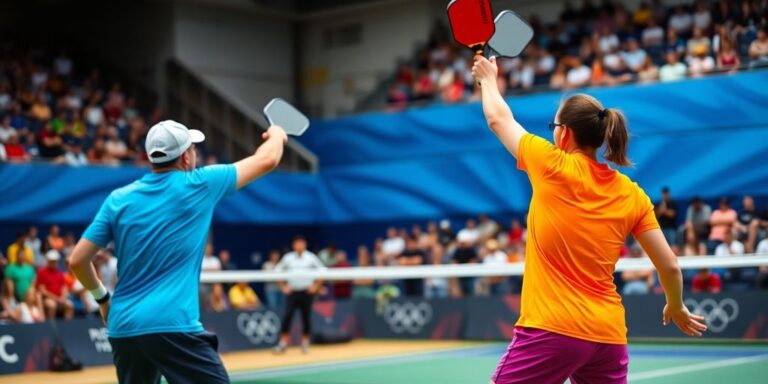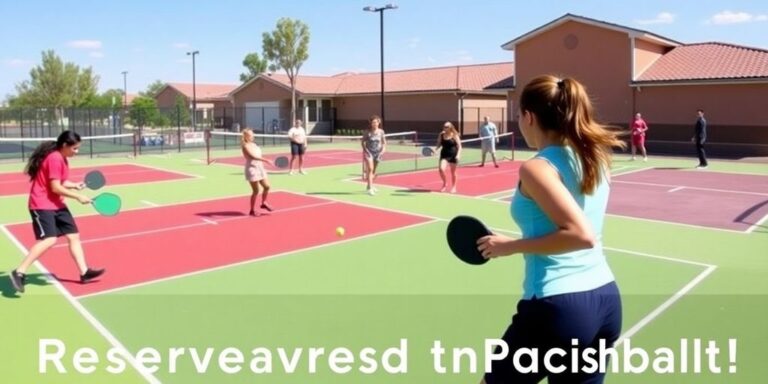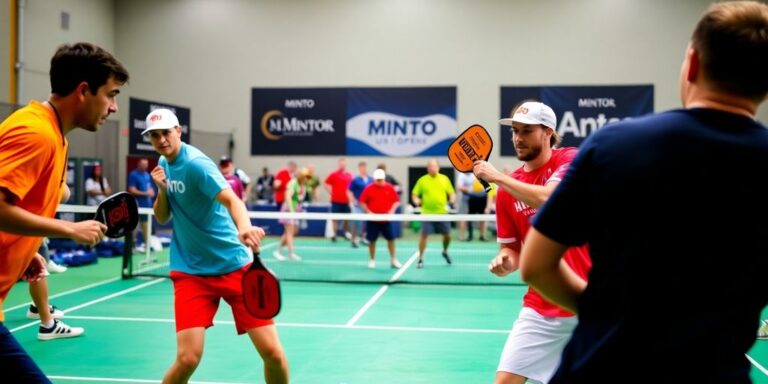Pickleball has taken Michigan by storm, and with it comes the thrill of tournament play. As we gear up for the 2025 season, understanding how pickleball brackets work in Michigan is essential for players of all levels. Whether you’re a seasoned pro or just starting out, navigating the tournament scene can be both exciting and overwhelming. This guide will break down everything you need to know about pickleball brackets in Michigan, key tournaments, strategies for success, and the vibrant community surrounding this fast-growing sport.
Key Takeaways
- Familiarize yourself with different types of pickleball brackets in Michigan to find the right fit for your skill level.
- Major tournaments like the Annual State Championships are a great way to gain experience and meet fellow players.
- The registration process for tournaments can vary, so check specific event details ahead of time.
- Developing a solid game plan and mental strategies can significantly improve your performance in matches.
- Engaging with local pickleball clubs and volunteer opportunities can enhance your experience and build lasting friendships.
Understanding Pickleball Brackets Michigan

Types of Brackets
Pickleball tournaments use a few different bracket styles, and knowing them is key to understanding how a tournament works. Single elimination is pretty straightforward – lose one match, and you’re out. Double elimination gives you a little more leeway; you have to lose twice to be eliminated. Round robin is where everyone in a group plays each other, and the standings are determined by wins and losses. Then there are modified formats that blend elements of these, like pool play leading into a single-elimination bracket. Understanding the tournament formats is important for planning your strategy.
How Brackets Are Structured
Brackets are structured to ensure fair play and determine a clear winner. The size of the bracket depends on the number of teams or players participating. A typical bracket will show the progression of matches, with winners advancing to the next round. Seeding is often used to place stronger players or teams in advantageous positions, preventing them from meeting in the early rounds. This is usually based on past performance or a rating system. The structure aims to balance competition and provide opportunities for all participants to compete. Here’s a quick rundown:
- Seeding: Higher-ranked players get an initial advantage.
- Match Progression: Winners move up, losers (in some formats) get another chance.
- Bracket Size: Dictated by the number of participants.
Common Tournament Formats
Michigan pickleball tournaments feature a few common formats. You’ll often see single-elimination tournaments, especially in smaller events. Round robins are popular for ensuring everyone gets a good amount of playing time. Double-elimination tournaments are also common, giving players a second chance. Some tournaments use a combination of formats, such as pool play followed by a single-elimination bracket. Knowing the format beforehand helps you prepare. If you’re new to the game, understanding how to play pickleball is a good starting point.
Understanding the tournament format is important. It affects your strategy and how you approach each match. Knowing whether it’s single elimination, double elimination, or round robin will change how you pace yourself and manage risk.
Key Tournaments in Michigan
Michigan’s pickleball scene is buzzing, and that means some great tournaments are popping up all over the state. Whether you’re looking for serious competition or just a fun weekend of dinking, there’s something for everyone. Let’s take a look at some key events you should have on your radar for 2025.
Annual State Championships
The Michigan State Championships are a big deal. This is where the best players in the state come to compete for the title. It’s usually a multi-day event with brackets for all skill levels and age groups. Expect a well-organized tournament with certified referees and a lively atmosphere. Keep an eye on the tournament calendar for the exact dates and location, as it can change from year to year. It’s a great opportunity to test your skills against top-notch competition and see where you stack up in the Michigan pickleball world.
Local Club Tournaments
Local club tournaments are the backbone of the Michigan pickleball community. These are smaller, more casual events that are perfect for players of all levels. They’re a great way to meet other players, improve your game, and have some fun. Many clubs host tournaments regularly, so there’s usually one happening nearby. Check with your local pickleball courts and games or clubs for their tournament schedules. These tournaments often have a more relaxed vibe than the state championships, making them ideal for first-time tournament players. Plus, the entry fees are usually lower, so it’s an affordable way to get involved in the competitive scene.
Regional Competitions
Beyond the state championships, Michigan also hosts several regional pickleball competitions that draw players from surrounding states. These tournaments offer a higher level of competition and are a good stepping stone for players looking to compete at the national level. These events often feature larger prize pools and attract sponsors, adding to the excitement. Keep an eye out for tournaments sanctioned by organizations like USA Pickleball, as these events often offer ranking points and qualify players for national tournaments. If you’re serious about pickleball and want to test your skills against a wider range of opponents, regional competitions are definitely worth checking out. You can discover upcoming pickleball tournaments online.
Participating in tournaments is more than just about winning; it’s about being part of a community, pushing your limits, and enjoying the thrill of competition. It’s a chance to learn from others, make new friends, and create lasting memories. So, whether you’re a seasoned pro or a beginner, consider signing up for a tournament and experiencing the excitement for yourself.
Navigating the Tournament Scene
So, you’re thinking about jumping into the Michigan pickleball tournament scene? Awesome! It can seem a little overwhelming at first, but once you get the hang of it, it’s a blast. Here’s what you need to know to get started.
Registration Process
Getting signed up for a tournament is usually pretty straightforward. Most tournaments use online platforms like Pickleball Brackets or similar sites. Here’s the general process:
- Find a Tournament: Look for tournaments that match your skill level and preferred format. Check out local club websites or the USA Pickleball website for listings.
- Create an Account: If you don’t already have one, you’ll need to create an account on the registration platform.
- Register: Select the tournament and the event (e.g., men’s doubles 3.5) you want to participate in. You might need to find a partner if it’s a doubles event.
- Pay the Fee: Tournament fees vary, so be sure to check the cost before you register. Payment is usually done online.
- Confirmation: You should receive a confirmation email once your registration is complete. Keep this for your records.
Understanding Match Schedules
Match schedules are usually released a day or two before the tournament starts. They can be a little confusing, but here’s what to look for:
- Your Name: Find your name (and your partner’s name, if applicable) on the schedule.
- Match Time: Note the time and court number for your match. Be there early! Tournaments run on tight schedules.
- Opponents: See who you’re playing against. It can be helpful to know their names, but don’t stress too much about it beforehand.
- Bracket: Understand where your match falls in the bracket. This will help you track your progress and know when your next match is (if you win!).
Tournament schedules can change, so check the schedule frequently for updates. Most tournaments will post changes on a whiteboard or use an app to send notifications. Don’t rely solely on the initial schedule.
Tips for First-Time Participants
Okay, so you’re ready to play! Here are a few tips to make your first tournament experience a good one:
- Arrive Early: Give yourself plenty of time to check in, warm up, and find your court. Rushing around will only add to your stress.
- Bring Essentials: Pack water, snacks, sunscreen, a hat, and extra grips for your paddle. You’ll be spending a lot of time outside.
- Know the Rules: Make sure you’re familiar with the new rules for pickleball. It’s embarrassing to argue about a rule you don’t know.
- Be a Good Sport: Win or lose, be respectful to your opponents and the referees. Pickleball is a social game, so make some friends!
- Have Fun! Tournaments are a great way to test your skills, meet new people, and enjoy the game. Don’t take it too seriously, and remember to have fun. Understanding skill levels in pickleball can also help you manage expectations and enjoy the competition more fully.
Strategies for Success in Pickleball Brackets
Effective Game Plans
Okay, so you’re in a tournament. Time to ditch the casual play and get serious about strategy. Having a solid game plan is super important. Think about your strengths and weaknesses, and then figure out how to use them to your advantage. Are you a banger or a dinker? Do you prefer the right or left side? Knowing this will help you make better decisions during the match.
- Identify your go-to shots and when to use them.
- Practice different strategies for different opponents.
- Always have a backup plan if your initial strategy isn’t working.
It’s not just about hitting the ball hard. It’s about placement, consistency, and knowing when to attack. A well-thought-out game plan can make all the difference, even if you’re not the most athletic player on the court.
Mental Preparation Techniques
Pickleball is as much a mental game as it is physical. You need to be able to stay focused, handle pressure, and bounce back from mistakes. I know, easier said than done, right? But there are things you can do to improve your mental game. For example, visualization can be a game changer. Picture yourself making those winning shots. Also, try to stay positive, even when things aren’t going your way. Remember, it’s just a game, and enjoy the game!
- Practice mindfulness to stay present during matches.
- Develop a pre-game routine to get in the zone.
- Learn to manage your emotions and avoid getting frustrated.
Analyzing Opponents
Before you even step onto the court, do your homework. Watch your opponents play if you can. What are their strengths and weaknesses? What shots do they prefer? What are their tendencies? The more you know about your opponents, the better prepared you’ll be to exploit their weaknesses and neutralize their strengths. This is especially important in bracket play, where you might face the same opponents multiple times. Understanding competitive play is key to success.
- Observe their serving style and return strategies.
- Identify their preferred court position and movement patterns.
- Note their reactions to different types of shots and pressure situations.
Here’s a simple table to help you keep track of your opponent’s tendencies:
| Opponent | Strength | Weakness | Preferred Shot | Tendency |
|---|---|---|---|---|
| Player A | Forehand dinks | Backhand volleys | Cross-court | Avoids the non-volley zone |
| Player B | Power serves | Soft shots | Down the line | Aggressive at the net |
Community and Social Aspects of Pickleball
Pickleball isn’t just about the game; it’s about the people you meet and the connections you make. It’s a super social sport, and that’s a big part of why it’s so popular. You’ll find people of all ages and skill levels out on the courts, all having a good time.
Building Friendships Through Play
Pickleball is a fantastic way to make new friends. The nature of the game encourages interaction, whether you’re partnering up in doubles or chatting between matches. It’s easy to strike up conversations and find common ground with other players. I’ve seen so many lasting friendships blossom on the pickleball court. It’s a great way to expand your social circle and find people who share your love for the game. The social aspect is a huge draw for many people, and it’s what keeps them coming back week after week.
Local Pickleball Clubs
Local pickleball clubs are the heart of the community. They offer a structured way to play, learn, and connect with other enthusiasts. These clubs often organize regular play sessions, beginner courses, and social events. They’re a great resource for finding partners, improving your skills, and staying up-to-date on local tournaments and happenings. Many clubs also offer leagues and ladders, which provide a fun and competitive environment for players of all levels. Joining a club is a great way to immerse yourself in the pickleball scene and become part of a supportive community.
Volunteer Opportunities
There are plenty of ways to get involved in the pickleball community beyond just playing. Volunteering is a great way to give back and help grow the sport. Here are a few ideas:
- Tournament Assistance: Help with registration, court setup, or scorekeeping at local tournaments.
- Coaching/Mentoring: Share your knowledge and skills by coaching beginners or mentoring less experienced players.
- Club Administration: Assist with organizing events, managing membership, or promoting the club within the community.
Volunteering is a rewarding way to contribute to the pickleball community and make a difference. It’s a chance to meet new people, develop new skills, and help ensure that the sport continues to thrive in Michigan. Plus, it just feels good to give back!
It’s amazing to see how many people are passionate about pickleball’s growth and are willing to dedicate their time and energy to making it even better.
The Future of Pickleball in Michigan

Pickleball’s popularity is showing no signs of slowing down, and Michigan is right there with the rest of the country. It’s exciting to think about where the sport will be in the next few years. We’re seeing more and more people of all ages getting involved, and that’s creating a real buzz around the game. From new facilities to rising stars, the future looks bright for pickleball in the Great Lakes State.
Growth Projections
Pickleball’s growth is expected to continue at a rapid pace. The number of players in the US was around 19.8 million pickleball players in 2024, and that number is only going to increase. This growth will likely lead to more courts, more tournaments, and more opportunities for people to play. We can expect to see a greater presence of pickleball in schools, community centers, and even retirement communities. The sport’s accessibility and social nature make it appealing to a wide range of people, which is a big reason why it’s growing so quickly.
Emerging Talent
Michigan is starting to produce some impressive young pickleball players. These rising stars are competing in tournaments and gaining recognition on a regional and even national level. One example is a nonprofit organization founded by a 14-year-old to teach pickleball to local youth. As the sport grows, we’ll likely see more training programs and academies emerge, helping to develop even more talented players. Keep an eye out for these names – they could be the future of pickleball in Michigan.
Investment in Facilities
One of the biggest challenges facing pickleball is the lack of dedicated courts. However, that’s starting to change as cities and towns across Michigan are investing in new facilities. New Baltimore officials are pursuing grant funding to build new pickleball courts. This investment is crucial for supporting the growth of the sport and providing players with quality places to play. We can expect to see more public and private facilities being built in the coming years, making it easier for people to access the sport.
It’s not just about building more courts, but also about improving the quality of existing ones. Many older tennis courts are being converted into pickleball courts, but these conversions often require upgrades to the surface, lighting, and fencing. Investing in high-quality facilities will help to attract more players and create a better experience for everyone involved.
Resources for Pickleball Enthusiasts
Online Communities
Finding your pickleball tribe is easier than ever thanks to the internet. There are tons of online forums and groups dedicated to the sport. These communities are great for finding local players, getting tips, and staying up-to-date on tournaments. You can ask questions about tournament formats, share your experiences, and even find someone to practice with. Facebook groups are super popular, but don’t forget about dedicated pickleball forums and subreddits. It’s a great way to connect with other enthusiasts and improve your game.
Training Programs
Want to take your pickleball game to the next level? Consider enrolling in a training program. Many local clubs and community centers offer lessons for all skill levels. These programs can help you refine your technique, learn new strategies, and improve your overall game. Plus, you’ll get personalized feedback from experienced instructors. Look for programs that focus on specific skills, like dinking, serving, or volleying. Some programs even offer video analysis to help you identify areas for improvement. Don’t underestimate the power of professional guidance!
Equipment Recommendations
Choosing the right equipment can make a big difference in your pickleball game. With so many options available, it can be tough to know where to start. Here are a few things to consider:
- Paddles: Look for a paddle that feels comfortable in your hand and suits your playing style. Consider the weight, grip size, and material.
- Balls: Choose pickleballs that are designed for indoor or outdoor play, depending on where you’ll be playing most often.
- Shoes: Invest in a good pair of court shoes that provide support and traction. This will help you move quickly and prevent injuries.
Getting the right gear is important, but don’t overthink it. Start with the basics and upgrade as needed. The most important thing is to find equipment that you feel comfortable using and that helps you enjoy the game.
Also, don’t forget to check out local pickleball clubs for recommendations and discounts on equipment. They often have partnerships with equipment manufacturers and can offer expert advice.
If you love pickleball, you’ll want to check out our website for great resources! We have tips, guides, and everything you need to improve your game and connect with other players. Don’t miss out—visit us today and take your pickleball skills to the next level!
Wrapping Up the Pickleball Adventure
So there you have it! Pickleball is really taking off in Michigan, and the excitement is palpable. With tournaments popping up everywhere, it’s a great time to get involved. Whether you’re a seasoned player or just curious, there’s a spot for you on the court. Don’t miss out on the fun—grab a paddle, find a local tournament, and see what all the buzz is about. Who knows, you might just discover your new favorite sport! Keep an eye on the upcoming events, and let’s make 2025 the year of pickleball in Michigan!
Frequently Asked Questions
What are pickleball brackets?
Pickleball brackets are the way tournaments organize players into matches. They show who plays against whom as the tournament goes on.
How do I sign up for a tournament?
To register for a tournament, you usually need to fill out a form online and pay a fee. Check the tournament’s website for details.
What types of tournaments are held in Michigan?
In Michigan, you can find different types of tournaments like state championships, local club events, and regional contests.
What should I expect on match day?
On match day, arrive early to check in, warm up, and find your court. Matches are scheduled, so know your time and place.
How can I improve my game for tournaments?
To get better, practice regularly, watch other players, and focus on your strategy and fitness. Joining a local club can help too.
Is pickleball suitable for all ages?
Yes! Pickleball is a fun sport for people of all ages. Many kids and adults enjoy playing together.
